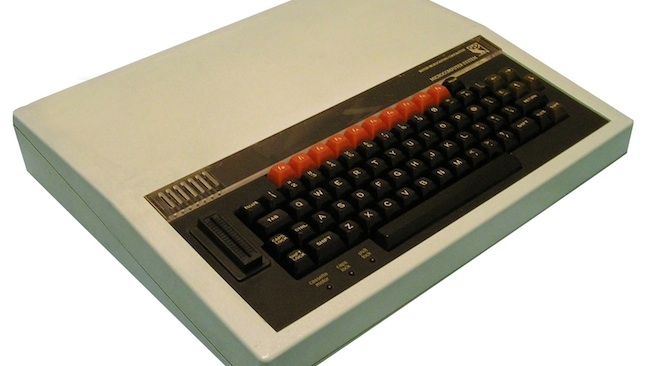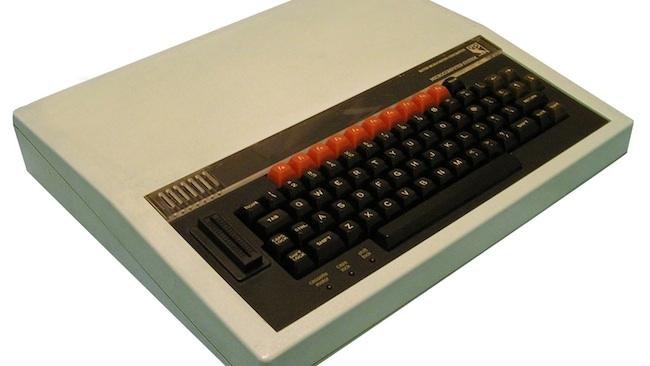
 The BBC Micro - returning in app form?
The BBC Micro - returning in app form?
Considering it is one of the world’s oldest and most venerable broadcasters, the BBC has an impressive reputation for forging ahead in the brave new digital world as a raft of new announcements - and a 32 year old microcomputer - proves
Beloved national institution or bloated abuser of nigh-on monopolistic powers, the BBC tends to polarise opinion like no other broadcaster, and the debate will probably only intensify given Director General Tony Hall’s unveiling of an impressive new list of digital initiatives. Of course it’s difficult to leave the politics entirely aside, especially given the new technologies’ role in undermining the core universality premise that the Corporation’s very existence is predicated on, but we’ll give it a go. After all, some of this stuff is rather cool (and if anyone really wants a feature on the role of subscription funded public broadcasters in the new media topology, feel free to ask).
New generation
First off there’s a new generation BBC iPlayer, coming in the first half of next year which, following current thinking about widening viewer choice, the Corporation says will boast new functionality allowing a more bespoke experience for every user. The catch-up window will be extended out to 30 days from its current seven, it will feature iPlayer-only curated content and channels, including pop-up channels centered around significant events such as Glastonbury, and it will even allow users access to content before broadcast at times that suit them. A la iTunes, it will also debut the BBC Store, a UK-only new service which will offer people the chance to buy, watch, and keep an On Demand selection of BBC programmes.
Live
The Corporation is also ramping up its live online offerings, promising the delivery of more live events across PC, tablet, mobile and connected TV in a blizzard of video, audio, text and stats. This all makes sound sense. At Glastonbury, digital audiences were up 98% compared to the previous festival in 2011, and Wimbledon saw the highest UK audience for a live event since the London 2012 Olympics, with 27m UK browsers across four screens. Such a joined up approach is promised in the future from the Winter Olympics onwards.
BBC Playlister is one new announcement that took a lot of people by surprise: an app that will let audiences tag music heard across the BBC’s output to a personal online playlist, which they can then export to one of the BBC’s digital music partners (currently Spotify, YouTube or Deezer, with more to be announced) to hear the music in full. It’s a neat idea – one the Corporation characterises as allowing viewers to tag “tracks from Lauren Laverne’s Radio 6 Music show, that song playing in the café in EastEnders, or the tune that Anton Du Beke and Fiona Fullerton are dancing to on Strictly Come Dancing” - and it will be interesting to see how it develops with curated lists from Djs coming on stream later in the year
Playlister is part of the Corporation’s avowed aim to capture the attention of the YouTube generation – indeed, another aim is to double global online audiences to 500m, which is getting close to eight times the population of its home audience – but there was one final component of Hall’s speech designed to do the same which perhaps promises to be the most intriguing.
Intrigueing
“Over 30 years ago, the BBC played a leading role in helping Britain get to grips with the first wave of personal computers by putting the BBC Micro into the majority of schools,” runs a statement, which then frustratingly peters out into a rather wooly promise to bring digital tech and computer coding into more homes, schools and businesses than before using its TV, radio and online services in what is billed as a “safe online playground”. The devil is in the detail, and frustratingly here there isn’t much, apart from some sketchy comment about partnerships being central to the whole initiative, which isn’t due to really kick off for another couple of years anyway.
But the BBC Micro was a true trailblazer, released in December 1981, well before the Sinclair Spectrum and Commodore 64 in 1982. 12000 units were expected to ship according to developer Acorn Computers with 1.5m eventually being sold worldwide, and if the Beeb can pull off anything near that scale of impact over three decades later, it really will be something impressive. Whether it’s something that should be funded by the license-fee payers of the UK though is where the arguments will no doubt start.
Tags: Articles


Comments